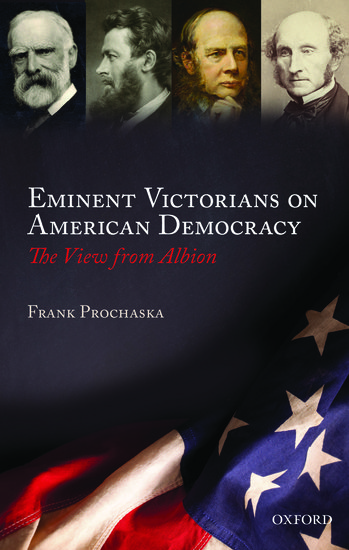By Frank Prochaska
What would the Founding Fathers think of the candidates in the Republican primaries? If the remaining presidential hopefuls were to be asked this question in a televised debate, the ignorant and dissembling replies would be a sorry spectacle. Romney would say that the Founders admired Mormons and millionaires and didn’t care about the poor; Gingrich would say that they would forgive his misdemeanours in the interest of his political genius; Santorum would declare that they believed in miracles, hated gays and opposed abortion; and Ron Paul would say they would abolish taxation and the Federal Reserve. There would be one point of agreement: the Founders would find Obama an un-American “intellectual” unfit to lead the Republic.
What the Founding Fathers would make of the motley group of Republican candidates is speculative, but one can assume that they would dismiss them as partisan nobodies. It is often forgotten, but the Founders designed the Constitution in a pre-democratic age before the emergence of a party system, which they feared could lead, in George Washington’s words, to the “unjust dominion” of “unprincipled men.” They were well aware that they had created an imperfect document beset by compromise and issues unresolved. If they were alive today, and as wise as assumed, they might wish to amend the aging text that has failed to stem the tide of faction, has led to political deadlock, and has become an obstacle to governance.
As the voting public expanded in the nineteenth century and America became a “democratic republic,” the growth of partisanship justified the anxieties of the Founders about the pernicious effects of popular government. With the rise of Jacksonian Democracy, lower standards of probity evolved, with damaging results for the political process. The number of public offices grew and elections proliferated. Meanwhile, the American moneyed class, which has a great affinity for democratic institutions, spent increasing sums in the wholesale bribery of officialdom. As the perfected party system cherished loyalty and organization, belligerence became the essence of American politics, keeping one’s rivals out of power a prize of success.
![James Bryce [James Bryce, M.P.] After a photograph by J. D. Hilton.](http://images.nypl.org/index.php?id=1163983&t=r)
The Federal system, with its competing sovereignties and incessant electioneering, propels an artificial selection process that promotes antagonism and encourages mediocrity, in which the nation’s best and brightest remain outside politics. In America, as John Stuart Mill put it, all political ambition gravitates towards the demos. Vulgarity and volatility are a result, a relentless cycle of indifference punctuated by intervals of partisan passion by deracinated voters with low expectations of government. It is more important that party nominees should be faithful partisans that that they should turn out to be effective legislators. It is regrettable if a President turns out to be a non-entity, but it is a disaster for the party if it loses an election and is deprived of the chance to enjoy the spoils of office.
The United States does not have the Constitution to thank for its few great Presidents. When a talented President unexpectedly emerges, it is largely down to chance. Most holders of the office, to use Bryce’s phrase, have been “intellectual pigmies.” But to many Americans, who see the Constitution as Holy Writ, the very thought that it might be amended to remedy the faults in its electoral structure is sacrilege. Even the Electoral College, which most commentators think obsolete, appears beyond reform. Thus, the demagogic party hack, an artless stranger to truth, who can never be fair to his opponents or bold except in the interest of the faithful, continues to be thrown up by the debased political process. When one considers the current crop of Republican hopefuls, is it surprising that a distrust of government is so deeply ingrained in American culture?
Frank Prochaska is a British historian, who is currently a member of the History Faculty of Oxford University and is attached to Somerville and Wolfson Colleges. He is the author of a number of scholarly books, most recently Eminent Victorians on American Democracy: The View from Albion.



I stopped reading after this “. Romney would say that the Founders admired Mormons and millionaires and didn’t care about the poor; “.
I am not a Romney supporter by any means, but this is not what he said. I heard the whole context of this discussion and he mentioned that the poor have a safety net, which is why he wouldn’t concern himself – he even added that the safety net would just need to be adjusted.
Poor wording perhaps, but you twisted it in this article. That’s a shame…
I must concur with Mr. Postema. I do not care for the Republican candidates either, but the opening paragraph seems like a series of cheap shots and mars an otherwise well-written piece.
I am a Welshman now living in the USA, and while I admire the brilliance and resilience of the US constitution and the republic’s development into a mature democracy in the last 200 years, I see weaknesses in a system many born-and-bred Americans believe it is sacrilege to question. Naturally I am perturbed by the periodic resurgence of reactionary impulses. (And no, I do not think the British polity is superior.) Mr. Prochaska’s book looks interesting indeed, but must obviously be read with his biases in mind.
Of course, guessing what the Founding Fathers would have thought of anything is a mug’s game.